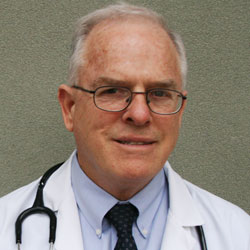A baby unable to consume food or water was born on April 15, 1982. The parents refused a procedure to correct the defect — because the child had Down’s syndrome. The Indiana Supreme Court affirmed the parents’ decision and the baby died of dehydration and starvation six days later.
 This and several other cases prompted Surgeon General C. Everett Koop, the American Academy of Pediatrics, and others to educate Congress and the public about the problem of disabled children being left to die. The outcome was passage of the Child Abuse Amendments, signed into law by President Ronald Reagan on Oct. 9, 1984. The law considered withholding of food, fluid, or medically indicated treatment as child abuse and therefore punishable by law.
This and several other cases prompted Surgeon General C. Everett Koop, the American Academy of Pediatrics, and others to educate Congress and the public about the problem of disabled children being left to die. The outcome was passage of the Child Abuse Amendments, signed into law by President Ronald Reagan on Oct. 9, 1984. The law considered withholding of food, fluid, or medically indicated treatment as child abuse and therefore punishable by law.
At the time, abortions had been legal for more than 11 years. One would surmise that today most of the more than 1.2 million annual abortions are of children without birth defects. But even if not, once born, the babies will be safe. Or will they?
The ‘ethicists’ weigh in
Earlier this year, professors Alberto Giubilini and Francesca Minerva published “After-birth abortion: why should the baby live?” in the prestigious British Medical Journal of Medical Ethics. They claim that neither fetuses nor newborns have the same moral status as actual persons and that their potential for personhood is morally irrelevant. Therefore, they argue, killing a newborn — which they call “after-birth abortion” — should be permissible in all cases where abortion is permissible.
While their argument may seem preposterous to some, it would find an audience in Holland. Abortion has been legal there since 1984. Assisted suicide — where the patient chooses when to take a lethal, physician-prescribed drug — and euthanasia — where the doctor kills the patient directly — were legalized in 2002. In 2005, infanticide was legalized in Holland.
In Washington, Oregon, and possibly Montana, assisted suicide is legal. It is vaguely illegal or decriminalized in a number of other states, and initiatives are pending in others. Euthanasia, though technically illegal, is nevertheless widely prevalent and becoming more acceptable in the secular world — where death is subtly but purposely caused by excessive sedation.
As the professors note, if a culture accepts abortion, it should accept infanticide. So if Holland presages America, could legalized assisted suicide and euthanasia overcome any reluctance to kill newborns here? That is, could the Child Abuse Amendments be reversed?
Sound crazy? The U.S. Health and Human Services Department intends to force employers to violate their consciences, if necessary, and provide contraception, abortifacients, and sterilization, to all employees. If they succeed in thus pushing freedom of religion aside, why wouldn’t they next expand their mandate to include abortion? Why not legalize and add assisted suicide and euthanasia?
Once employers are then forced to provide abortion, assisted suicide and euthanasia in their insurance plans, there will be nothing to stop future HHS mandates that require the inclusion of infanticide.
Jobs loom big in the coming election, yet the biggest election issue should be the government’s planned assault on our consciences — not economics.
Benedicamus Domino.




![[VIDEO] Make Sunday feel like Sunday again](https://www.catholicsun.org/wp-content/uploads/2021/04/2021-YOUTUBE-BISHOP-MESSAGE-THUMBNAIL-ENGLISH-218x150.png)

